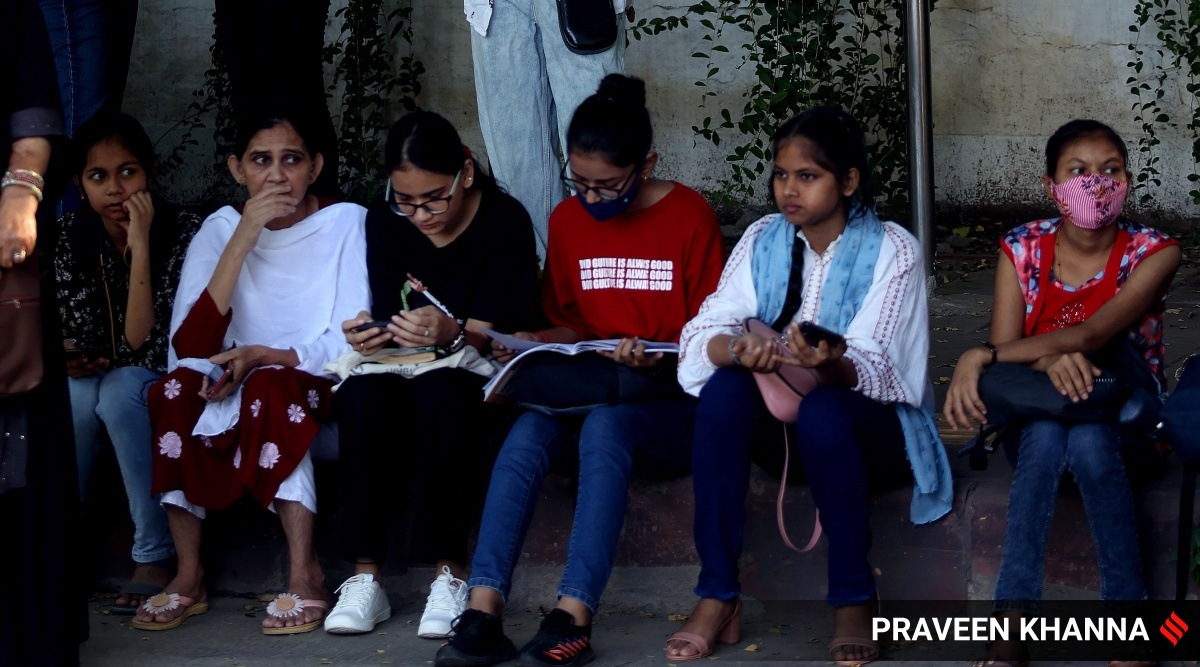 Though the admission process has been a long one for candidates — and sometimes challenging, because of the novelty — colleges say it has been short and simple for them. (Express file photo by Praveen Khanna)
Though the admission process has been a long one for candidates — and sometimes challenging, because of the novelty — colleges say it has been short and simple for them. (Express file photo by Praveen Khanna)With two more days to go for Delhi University’s first round of undergraduate admissions to close, more than 43,000 candidates have completed and sealed their admission by paying their fees.
On Sunday, colleges completed processing applications of candidates who had accepted seats allotted to them. Of 80,164 allocations made by DU, 72,865 were accepted by candidates. As of Sunday evening, 43,789 candidates had paid their fees after their applications were approved by colleges.
The university has also extended the deadline for fee payment till 2 pm on Tuesday, October 25, following a “request by candidates and considering Diwali festivities”. Earlier, the last date for online payment of admission fee for the first round of seat allocations was Monday, October 24.
Meanwhile, individual colleges said they have approved nearly all applications, with rejections making up a small minority: most commonly because of discrepancies in certificates and errors in subject mapping. Subject mapping errors mean that candidates had written the Common University Entrance Test in subjects they did not have in class XII.
Though the admission process has been a long one for candidates — and sometimes challenging, because of the novelty — colleges say it has been short and simple for them. The role of colleges in the admission process has been lessened to only processing applications once allocations have already been done by the University’s Common Seat Allocation System (CSAS). Having completed processing all applications on Sunday afternoon, their role in the first round of allotments is complete.
“It was definitely easier this year; it marks a whole category of changes likely to come in the university. Students won’t need to rush from one college to another trying to understand which option to go for in this short window since the allotment is done, and it is heartening that in many courses, we are already full in the first round,” said Indraprastha College for Women principal Rekha Sethi. Of the 1,576 candidates who had been allotted seats in the college, 1,500 had accepted their allocations. Out of these, 1,470 applications have been approved while 30 have been rejected.
“It is much easier on the college’s end. Earlier, cut-offs and all adjustments to be made for different boards used to take up a lot of time and effort. The pressures of over-admissions have also eased. If the cut-off would be even slightly off-the mark, we would end up with a much larger number of students than we could handle in some courses,” said Kirori Mal College admissions coordinator Siddhartha Lahon. Out of around 1,800 applications to the college, 34 had to be rejected.
At Aryabhatta College, of a total of 857 applications it had to process, only nine had to be rejected.
“The thing that is making me happiest is the fact that most of our seats are getting filled in the first round itself, as opposed to a process which used to carry on for a month. Because of the policy of allotting more candidates than the sanctioned strength, there are low chances that many seats will be empty even if all candidates don’t complete the process by paying their fees,” said Aryabhatta College principal Manoj Sinha, adding that the fee-payment process is moving slowly.
At Miranda House, the fee payment step is going more slowly in science courses than in humanities courses.